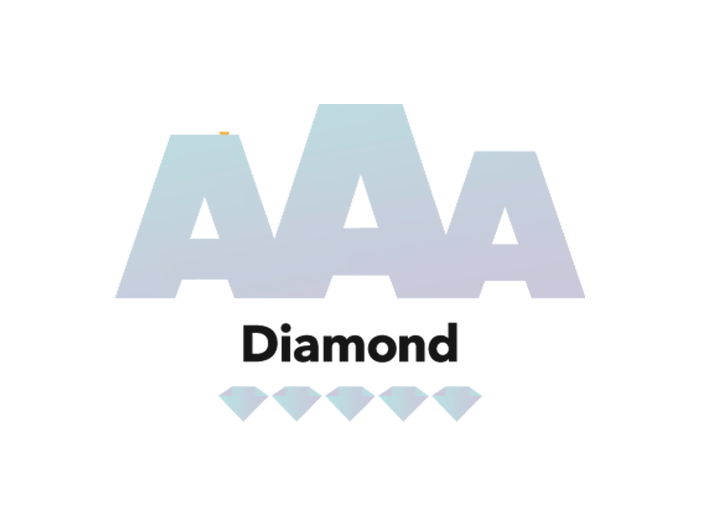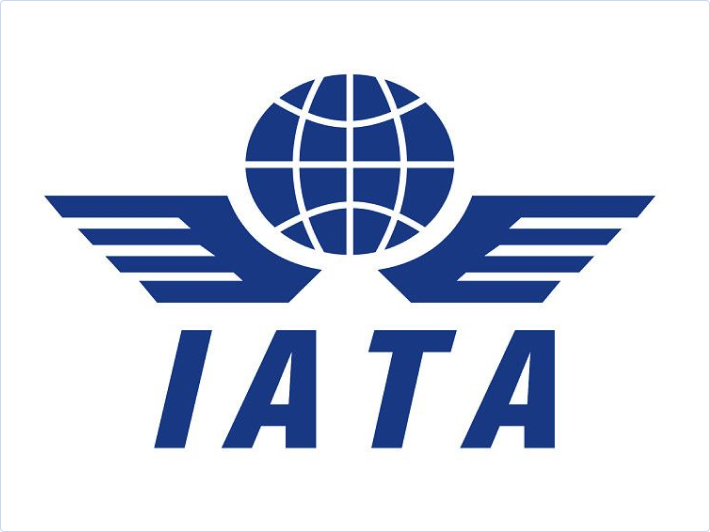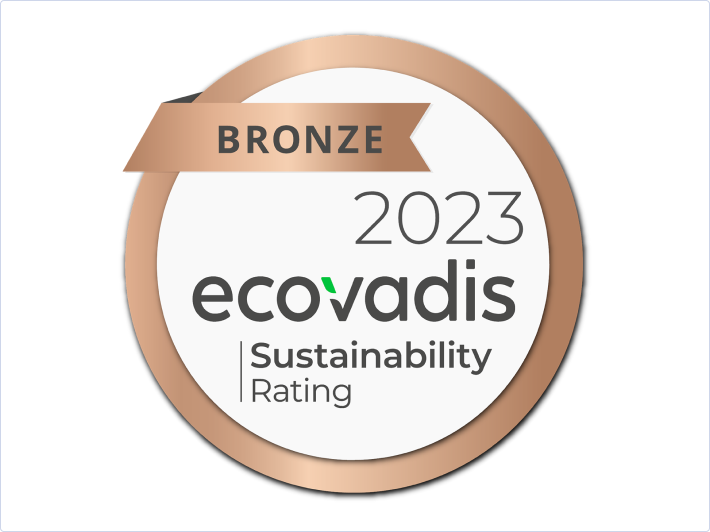Sea Freight is the most frequently used way of transportation, capable of moving the highest volumes of goods and offering the best value for money. It covers all continents. We can ensure fast and reliable service by using direct bookings with shipping lines to save money and time to our clients.
Join over 200 companies who trust us to keep their shipments safe.











Our colleagues’ decades of experience and personal network help meet the demands and service needs efficiently.
Our reliability is further supported by the long-standing ‘AAA’ certification from Dun & Bradstreet, earned by only about 0.63% of companies in the Hungarian market. Additionally, our AEO and ISO9001 certifications ensure the transparency and safety of our processes.
Thanks to precise adherence to deadlines and ongoing communication during freight forwarding, we support our partners’ work with a high level of predictability and transparency.
We strive to be available even outside regular hours. In urgent cases, our colleagues can be reached via mobile phone or email.
For easier tracking and record-keeping, we can provide reports upon request regarding ongoing shipments.
If needed, we send reports multiple times a day regarding the current status of shipments, and we provide regular reports as well.
Each of our partners has a dedicated contact person, ensuring continuity in handling shipping needs and details, as the same coordinator oversees each shipment.
Our reliability is underscored by our longstanding Dun & Bradstreet ‘AAA’ rating, ISO9001 certification, as well as our Authorized Economic Operator (AEO) certification, which represents the highest level of cooperation with customs authorities.
It is highly satisfying as we receive high-quality service; the team responds promptly to our requests, and the fees are competitive.
A reliable partner, always dependable for their services, and importantly, they respond promptly.
I've been working with DTD for years; the company is characterized by accuracy and reliability. I highly recommend them to everyone.
By clicking on the ‘Request for proposal’ tab, you can choose the type of transportation method (road freight, air freight, sea freight, railway freight) you wish to use.
Please provide the precise dimensions and other details of the shipment, as well as the starting and destination points of the delivery.
Our colleagues will contact you as soon as possible, so you just need to wait for their answer.
Sea freight is most recommended when you need to transport large quantities of goods over long distances—such as between continents—and cost-efficiency is a top priority. It allows for the shipment of multiple tons, or even thousands of containers, at significantly lower per-unit costs compared to air or road transport.
This option is particularly suitable when the goods are not time-sensitive, meaning it's not a problem if the shipment takes several weeks. Examples include raw materials, components, bulk-manufactured goods, household appliances, or certain types of food products. Sea freight is especially cost-effective for businesses involved in regular, large-volume import or export operations.
Another important factor is that sea freight can be more environmentally friendly than other modes of transport. Ships can move massive quantities of goods at once, resulting in lower carbon emissions per unit compared to air or road freight.
Sea freight is especially advantageous when transporting large, bulky, or heavy goods efficiently over long distances. It is particularly practical for the following types of cargo:
Bulk Commodities:
Materials such as metal ores, timber, coal, cement, salt, and minerals are ideal for sea freight due to their high volume and bulk handling requirements. These items often have a low unit value, making cost-effective shipping a crucial factor.
High-Volume Consumer Goods:
Sea freight is ideal for shipping clothing, furniture, household appliances, electronics, and other consumer products in large quantities. It enables affordable transport to international markets, even for massive volumes.
Liquid and Bulk Cargo:
Oil, fuels, chemicals, grains, animal feed, and fertilizers are transported using specialized ships such as tankers and bulk carriers. These vessels are designed to handle huge quantities of goods safely and economically.
Goods Requiring Specialized Containers:
Products that require temperature control—like fresh food, meat, seafood, pharmaceuticals, and other perishable items—are shipped using refrigerated containers (reefer containers). These ensure optimal conditions are maintained throughout the entire journey.
In summary, sea freight is the most practical solution for any type of cargo where high volume, low transport costs, and flexible delivery timeframes are key priorities.
Although sea freight is highly economical and efficient for transporting large volumes, it is not always the most suitable solution. In the following situations, alternative shipping methods may be more appropriate:
Time-Sensitive Shipments:
If goods require fast delivery—such as perishable food, pharmaceuticals, or urgent manufacturing components—sea freight is not ideal, as transit times from origin to destination can take several weeks. In these cases, air freight offers a significant advantage in speed.
Small Shipments:
For low-volume shipments, the fixed costs associated with sea freight can be disproportionately high relative to the value of the goods. Road or air transport often provides a more flexible, faster, and sometimes more cost-effective solution for smaller consignments.
Non-Container-Compatible Goods:
Certain items may not fit into standard shipping containers due to their size, shape, or special handling needs. Oversized industrial equipment, hazardous materials requiring unique procedures, or extremely fragile items may require specialized transport such as heavy equipment logistics or air freight.
Highly Fragile or Sensitive Goods:
Goods that are sensitive to environmental factors during long transit—such as humidity, temperature fluctuations, or vibration—face increased risks during sea freight. While specialized containers can mitigate some of these risks, faster transport options are often safer for especially delicate items.
In summary: If time is critical, the shipment is small, requires special handling, or is extremely sensitive to extended transit conditions, it’s best to consider alternative logistics solutions.
International sea freight offers a number of significant advantages:
High Capacity:
Sea transport is well-suited for shipping large quantities, whether it’s full container loads (FCL) or less-than-container loads (LCL). It accommodates everything from small packages to thousands of tons of cargo.
Sustainability:
Compared to air freight, sea shipping has a lower carbon footprint per kilometer and per unit of cargo, making it a more environmentally friendly option.
In sea freight, there are two main shipping methods to choose from depending on the volume of your goods: FCL (Full Container Load) and LCL (Less than Container Load).
With FCL shipping, an entire container is reserved for one shipper’s cargo. The container remains sealed and untouched from the point of loading to the final destination.
Advantages:
When to choose FCL:
If your shipment fills a significant portion of a container, or if you're transporting fragile or high-value items that require exclusive handling.
LCL shipping combines multiple smaller shipments from different customers into a single container. Each shipment is packed separately and moves together as part of a consolidated load.
Advantages:
Disadvantages:
When to choose LCL:
If your cargo doesn't fill a full container and you're looking for a budget-friendly option.
Summary:
Choose FCL for large, valuable, or sensitive shipments that justify the use of a dedicated container. Opt for LCL when shipping smaller volumes and seeking cost-efficiency without requiring exclusive container use.
In sea freight, the customs clearance process involves several key steps:
At DTD Express, we handle the entire customs clearance process on your behalf, ensuring a smooth and hassle-free experience so you don’t have to worry about the administrative burden.
Each type ensures that the cargo is transported safely and appropriately, based on its unique requirements.
+36202140922
+36204820796
+36202682117
info@dtdexpress.hu
H-2220 Vecsés, Cargo City, 325.épület, 1.lh. 1.em. A102.2
H-2890 Tata, Csever u. 2./F.
H-2800 Tatabánya, Teleki László u. 11. 1 em. 26. iroda
2004 – 2023 Door To Door Express. All Rights Reserved.
Made by scaleagency
Bence Lévai